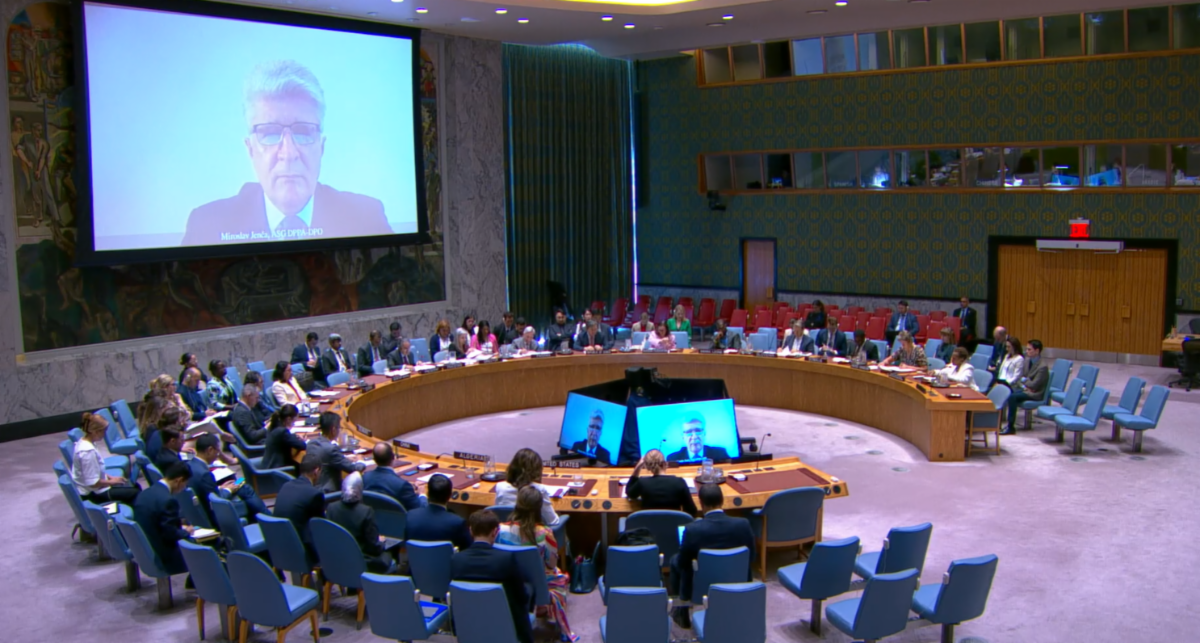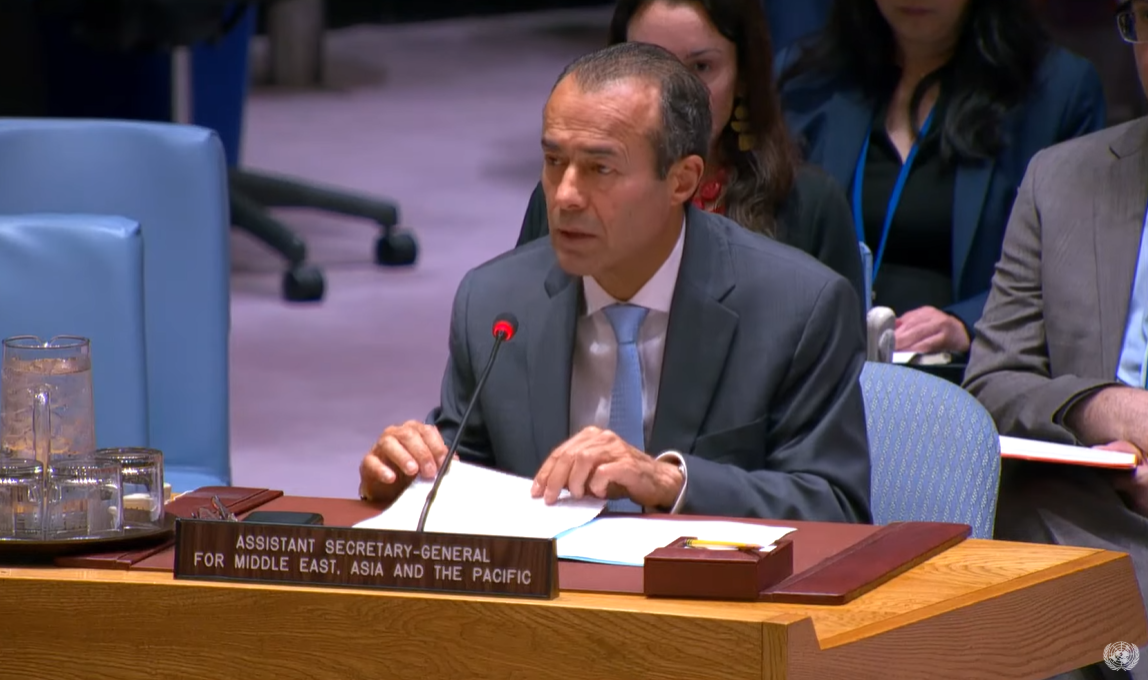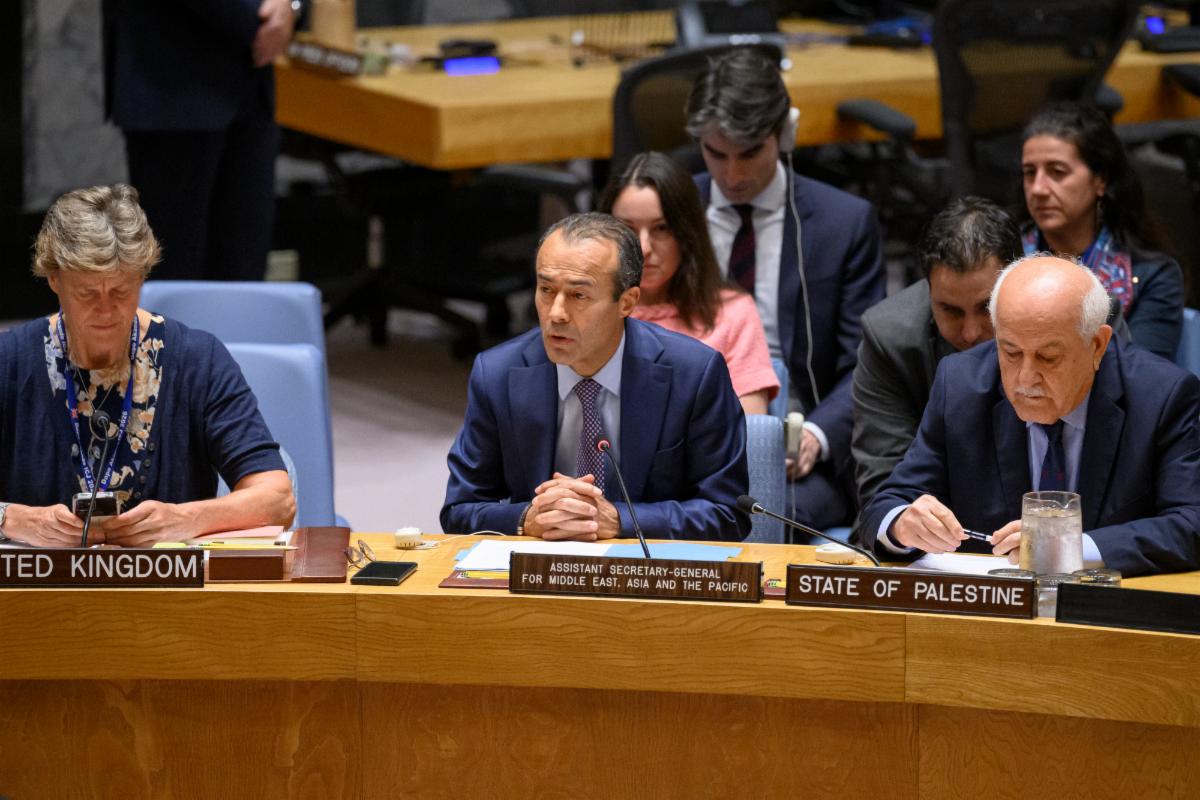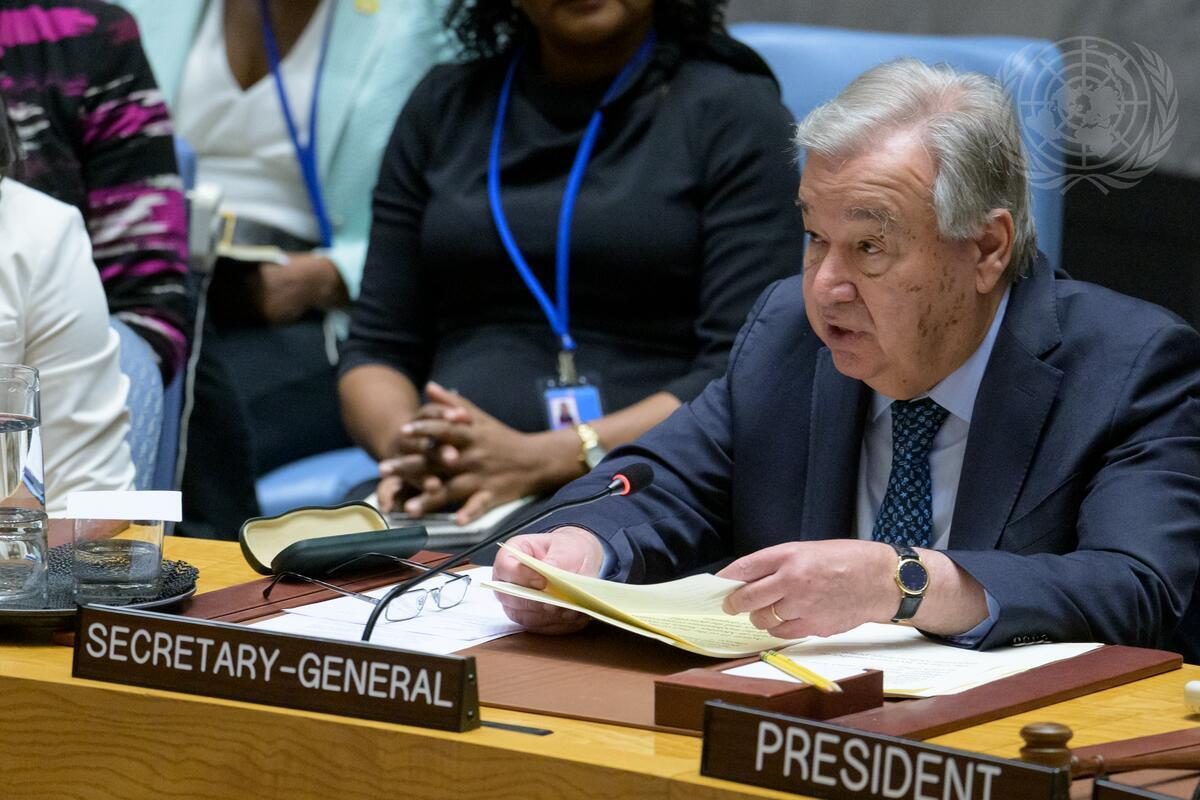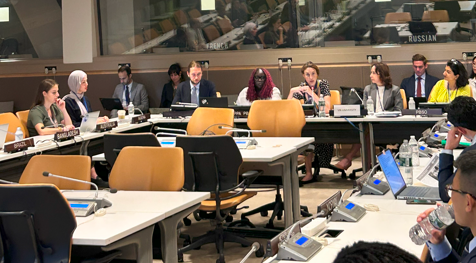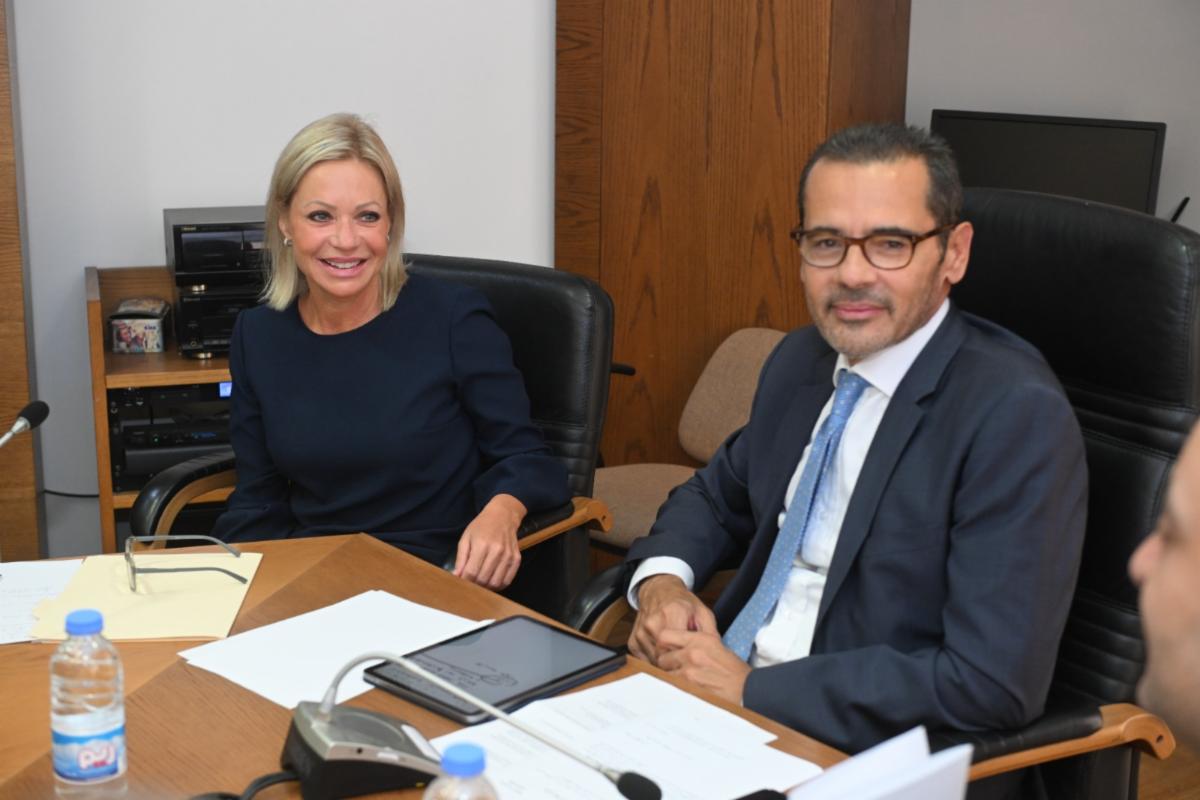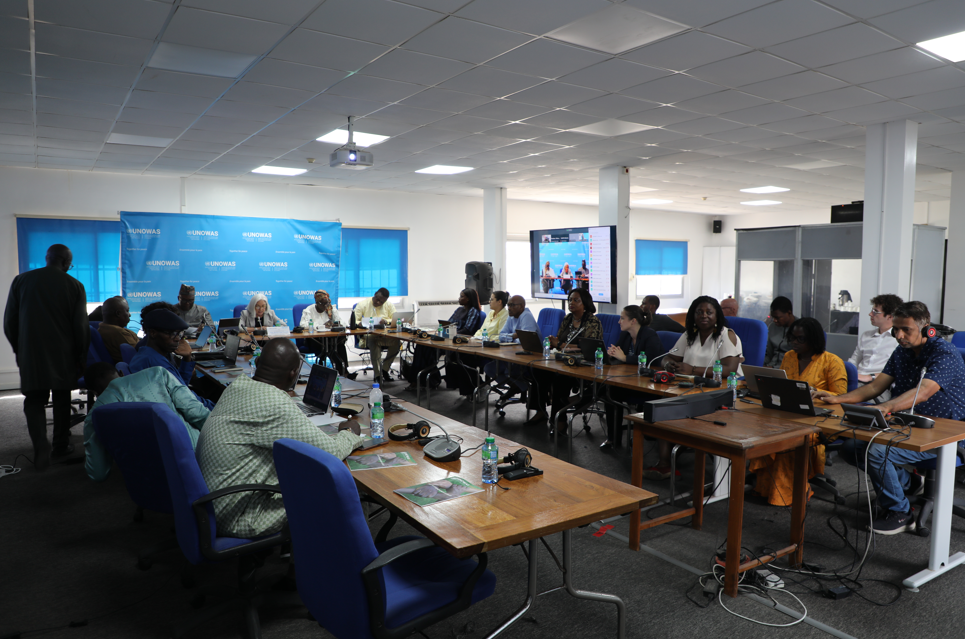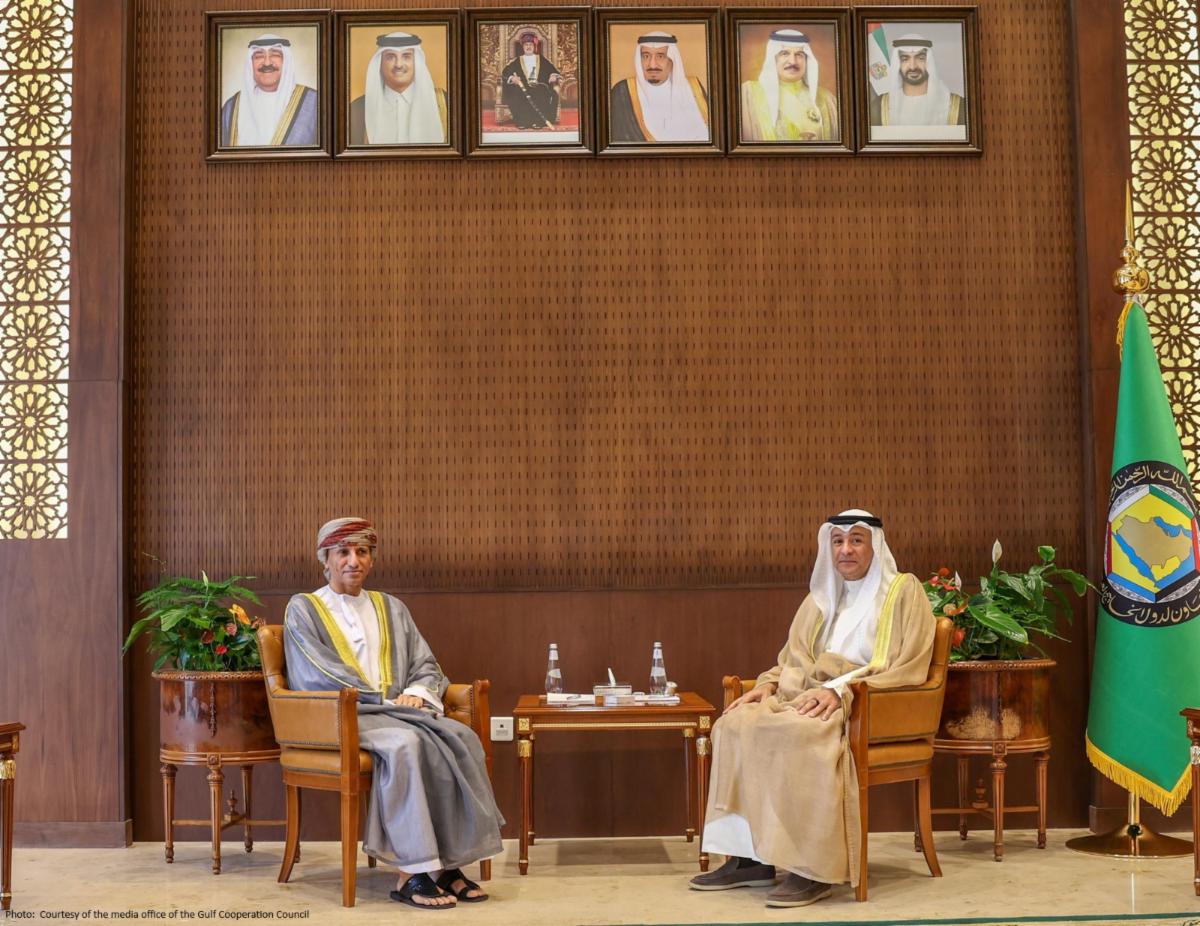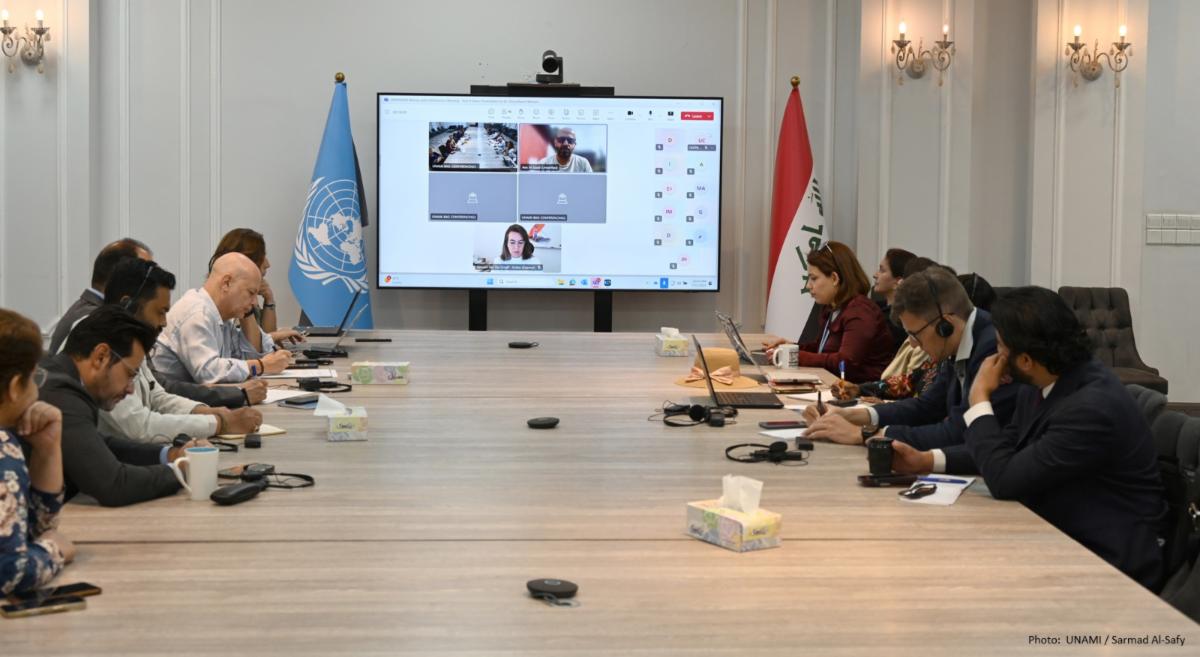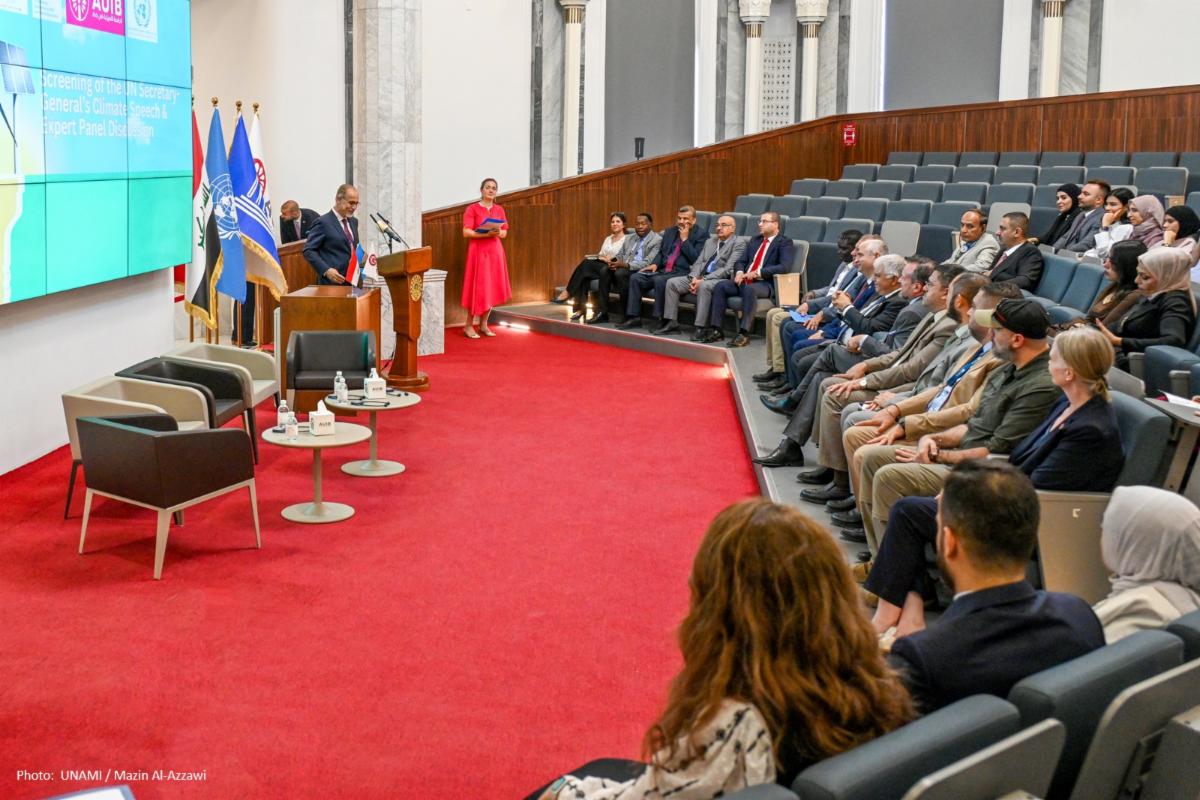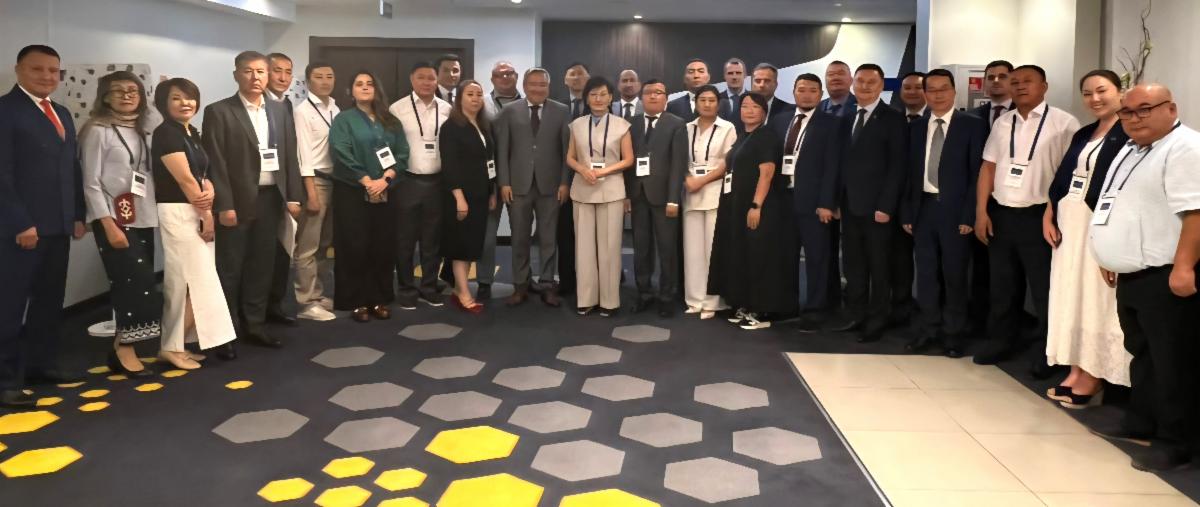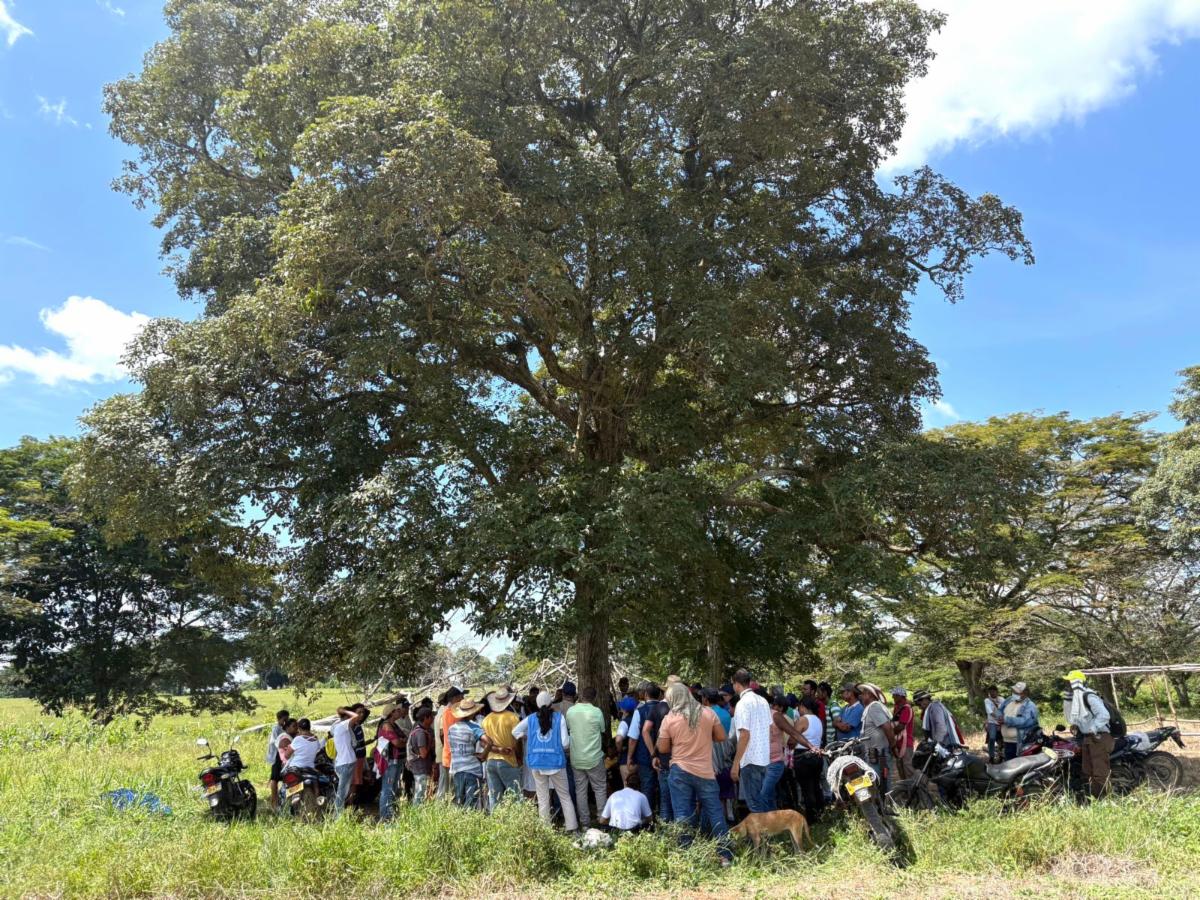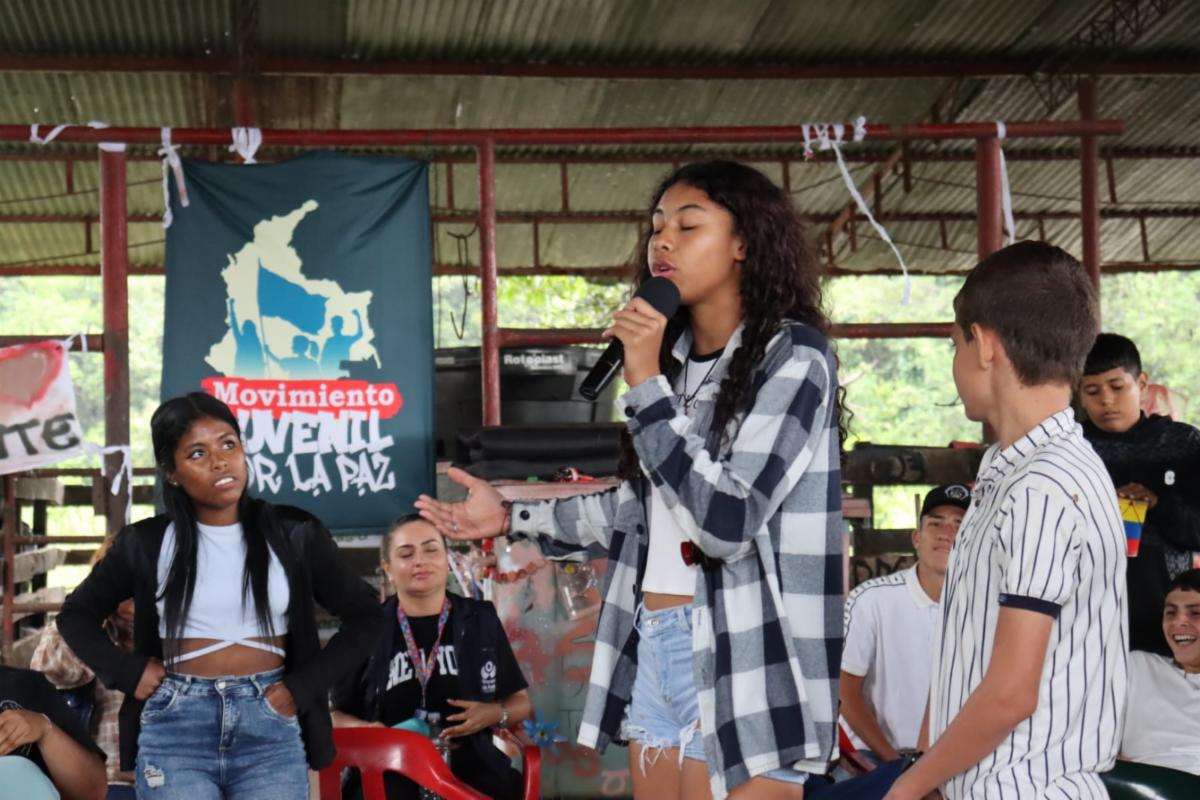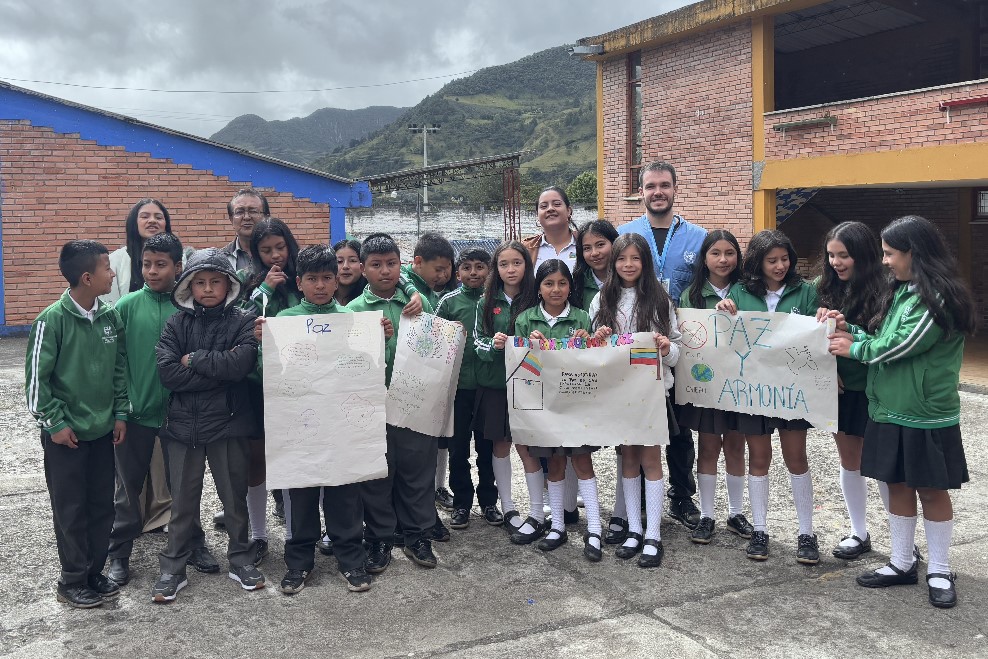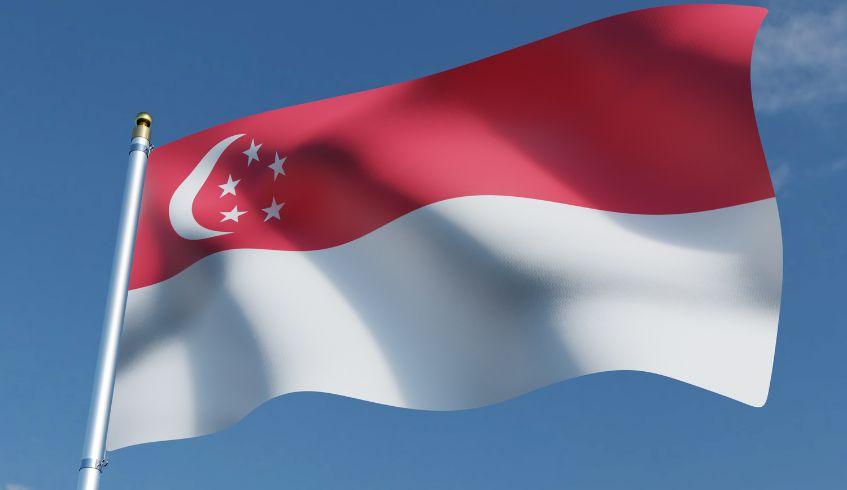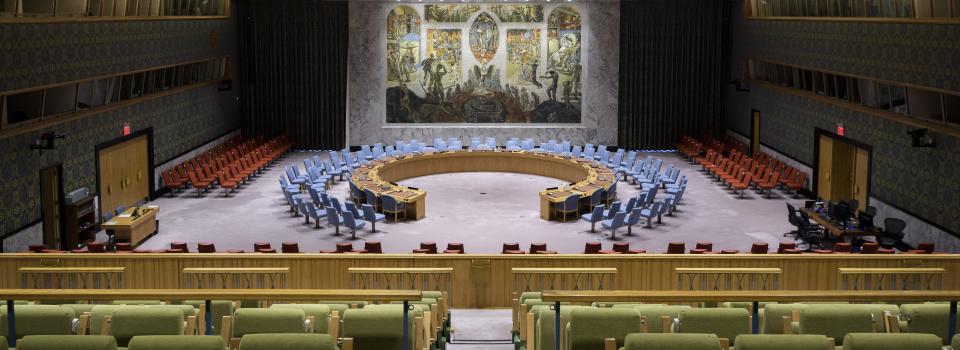Briefing by Under-Secretary-General Rosemary DiCarlo
to the Security Council
(Delivered by ASG Martha Pobee)
“Adapting peace operations for the pursuit of political solutions – priorities and challenges”
New York, 29 July 2025
Mr. President,
Excellencies,
I thank the Permanent Mission of Pakistan for convening this important briefing and creating this opportunity to hear the views of the members of this Council as we conduct the review of United Nations peace operations mandated by the Pact for the Future.
The Pact recognized UN peace operations – which comprise peacekeeping operations and special political missions – as essential instruments of multilateral action for peace.
For nearly eight decades, these operations have enabled the United Nations to deliver tailored responses to critical peace and security challenges.
Today, however, their work is shaped in new ways by a number of trends:
- The post-Cold War era has ended, and a multipolar order is emerging.
- The frameworks that States have used in the past to manage disagreements have eroded.
- Lack of trust among States is hindering collective action on urgent issues that pose a critical threat to humanity.
- Normative frameworks are challenged or interpreted differently by different parts of the Membership. This includes not only human rights norms, but also the norm of peaceful settlement of conflict.
Growing geopolitical fragmentation has led to increasing divergences of opinion – especially within the Security Council and among host states – around how our missions should function, what mandates they should be given, and under what circumstances they should be deployed.
Meanwhile, peace operations confront an evolving and more complex conflict landscape:
- Non-state armed groups continue to proliferate. Many use terrorist tactics or espouse unclear political objectives, challenging traditional peacemaking;
- New technologies bring opportunities, but also risks where they are being weaponized, from AI to drones;
- Transnational drivers of conflict, such as organized crime and the impact of climate change, are increasingly prevalent.
And yet, just as these threats are converging, increased competition at the geostrategic level is making international cooperation to address them more difficult.
In light of the challenges facing peace operations, there is a clear need to reflect on their future.
Mr. President,
As part of our reflections for this review, we went back into the history of special political missions since 1948 to distill ideas for the future.
During the Cold War, political tensions ran high and ideological divisions hindered multilateral cooperation. But this Council was able to find common ground through the work of our missions, which provided impetus for parties to settle disputes peacefully and avoid armed confrontation.
To mention a few cases:
In 1969, the diplomatic engagement by the Secretary-General’s Representative to Equatorial Guinea facilitated an agreement on the withdrawal of the Spanish forces stationed in the country, leading to the end of the dispute.
In 1970, envoys of the Secretary-General helped advance self-determination, such as in Bahrain.
In 1974 they conducted fact finding on the border dispute between Iraq and Iran.
From the decolonization process in Africa ushering the birth of new nations in the 1960s to Central America in the 1980s and early 1990s in the dying days of the Cold War, UN special political missions have helped Member States navigate political transitions at times of heightened tensions and advance peace and security.
Our support to South Africa at the end of apartheid furthered the National Peace Accord, amidst a charged political atmosphere as old structures crumbled and new ones emerged. Our political mission helped observe the elections that inaugurated a democratic, non-racial, and united society with the election of Nelson Mandela.
There are important lessons from this rich history of UN special political missions:
First, many of our political deployments were timebound and targeted. The focus was on a political task – as a matter of priority – and without a plethora of additional activities overextending their mandate.
Second, the missions were proactive in the use of the Secretary-General’s good offices, both through his immediate office and that of his representatives and the UN Secretariat.
Third, they came about sometimes with Security Council and Member State support, and at other times, they were a result of the Secretary-General expanding the diplomatic space in the most discreet fashion and away from the glare of the public spotlight and away from Security Council dynamics.
Fourth, the majority of these missions were nimble, easy to deploy, relatively economical to maintain and without major overheads and costs. In other words, small was beautiful. This is a valuable lesson to remember.
Fifth, the political and good offices work of these mission was based on consent, as must all mediation and dialogue be. In a time of divisions when external actors are viewed sometimes with suspicion and mistrust, it is essential that the work of UN special political mission, of small missions sent by the Secretary-General, be based on the consent and willingness of the host government, of the parties concerned and of the people of that country. The trust deficit we see today did not exist with many of our more successful missions in the past – this rich history must be re-explored and mined.
Mr. President,
Based on reflections on the past and indeed our present, I see three priorities to make special political missions more effective in the new era we are entering:
First, we must double down on diplomacy and peacemaking.
Politics, diplomacy, dialogue, and indeed peacemaking are the core work of this Organization. They remain our best tools—not only for resolving conflicts, but also for building trust, easing strategic rivalries, and bridging global divides.
As the Security Council recognized in resolution 2788 last week [on 22 July], Member States must make full use of the mechanisms for the pacific settlement of disputes outlined in Article 33 of the Charter. When they do so, special political missions can play an important role in advancing the peaceful resolution of conflicts.
To make peace, there is no alternative than to bring conflict parties to the table and help them reach agreement. But it is painstaking work and requires patient, often dogged, as well as responsive engagement.
Syria is a case in point. Over a decade, the people of Syria endured a terrible war, but changes in the political circumstances on the ground suddenly shifted the prospects for diplomacy. Thus, since December last year, our Special Envoy has engaged with Syrians across all of society, including the Syrian interim authorities, to support an inclusive political transition, de-escalate violence, protect civilians, and prevent regional spillover.
Second, to be successful, our political missions must be responsive to the needs of their host State or States – and, conversely, enjoy the support of their host State or States.
The responsibility for achieving political solutions rests with national actors. It is only logical, therefore, that national actors should be not just consulted, but rightfully heard, throughout the entire life cycle of a mission. We must walk away from missions that seem imposed by this Council or the international community.
Well defined mandates designed to address specific issues help manage expectations and maintain the confidence of the parties, as the work of our mission in Colombia demonstrates. The close collaboration between the Government of Colombia and the UN Mission there is a fine example of the possibilities that UN political missions can bring to a country implementing a peace agreement.
Just as crucially, given that peace is an all-of-society effort, our missions are most effective when they actively engage women and youth as well as civil society and marginalized groups in their work.
Inclusion must be at the heart of all our efforts. This means actively promoting the participation of women in political processes, as we have endeavored to do, for example, in Libya, in Syria, in Yemen, and in electoral processes in West Africa and the Sahel. Here, how we do such work matters, including through the use of digital technologies and AI to enhance inclusion, outreach, and new ideas for political solutions.
Third, we must maintain adaptability in the design of special political missions while ensuring that their core focus is always political.
When the Council finds common ground, we have the capacity to design profoundly innovative missions: from eliminating Syria’s chemical weapons through the OPCW-UN Joint Mission, for example, to promoting accountability for crimes committed by Daesh/ISIL through the creation of UNITAD in Iraq.
Special political mission run the gamut from envoys’ offices to regional offices, to investigative missions, to in-country field presences, to ceasefire monitoring missions, and electoral missions. They are diverse and responsive to the context at hand. But irrespective of the form they take, their core work is to pursue political solutions.
We must maintain this adaptability and this clarity of focus.
Mr. President,
Throughout its history, the United Nations has grappled with intractable conflicts and deep divisions, much like those we are witnessing today. We have been there.
Throughout its history, the United Nations has grappled with intractable conflicts, but one clear lesson is that amid acute geopolitical tensions, peace operations have helped Member States mount tailored responses to challenges to international peace and security. They exemplify collective action for peace. Their work is hard. It requires tenacity. But it is doable.
This review on the future of all forms of UN peace operations is a chance for reflection, self-awareness and honesty. We must ask ourselves:
How can we rebuild consensus and trust among Member States around these essential instruments?
How can we better engage with a laser like focus on matters of peace and security in which our missions have a comparative advantage – a re-emphasis on the politics?
How can we ensure that we have both Security Council and Member States support for such missions even as we enable the Secretary-General to utilise his diplomatic toolbox?
The answers are not easy. But we look forward to continued engagement with this Council throughout the review process and to working together to making peace operations a more effective instrument in the service of political solutions, and indeed for peace.
Thank you.

